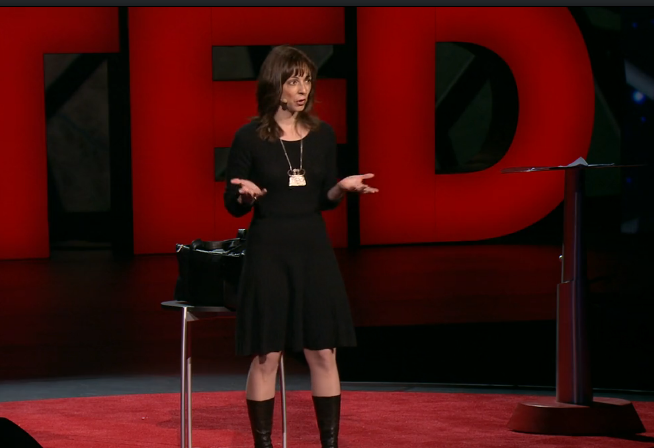Okay, same thing is true in our workplaces.
在職場上何嘗不是如此。
Now, most of us work in open plan offices, without walls, where we are subject to the constant noise and gaze of our coworkers.
我們大多在開放的空間工作,沒有隔閡,我們持續暴露于嘈雜的聲音跟同事的目光下。
And when it comes to leadership, introverts are routinely passed over for leadership positions,
而關于領導能力,內向的人大多不被認為具有領導能力,
even though introverts tend to be very careful, much less likely to take outsize risks -- which is something we might all favor nowadays.
就算他們行事更謹慎,更不會為了出鋒頭冒不必要的險--我們不都偏好這種人當領袖嗎?
And interesting research by Adam Grant at the Wharton School has found that introverted leaders often deliver better outcomes than extroverts do,
Adam Grant的一個有趣的研究發現,這些內向的領導者往往更能勝任領導職責,
because when they are managing proactive employees, they're much more likely to let those employees run with their ideas,
因為他們善于管理不同人才,讓有遠見的員工自由發揮,
whereas an extrovert can, quite unwittingly, get so excited about things that they're putting their own stamp on things,
反之外向的領導者,不經意的對事情反應過度,他們的見解較為主觀,
and other people's ideas might not as easily then bubble up to the surface.
這使很多員工的創新想法沒有機會被采用。

Now in fact, some of our transformative leaders in history have been introverts. I'll give you some examples.
事實上,很多有改革力的偉大領袖都是內向的人。我舉一些例子。
Eleanor Roosevelt, Rosa Parks, Gandhi -- all these peopled described themselves as quiet and soft-spoken and even shy.
羅斯福、蘿莎·帕克斯、甘地,這些人對自我的描述都是內向、文靜、說話溫柔,甚至是害羞的人。
And they all took the spotlight, even though every bone in their bodies was telling them not to.
他們矗立在鎂光燈下,即使他們渾身上下都告訴他們說不要這樣。
And this turns out to have a special power all its own,
這證明是一種屬于它自身的特殊的力量,
because people could feel that these leaders were at the helm not because they enjoyed directing others and not out of the pleasure of being looked at;
因為人們都會感覺這些領導者同時是掌舵者,并不是因為他們喜歡指揮別人,抑或是享受眾人目光的聚焦,
they were there because they had no choice, because they were driven to do what they thought was right.
他們處在那個位置因為他們沒有選擇,因為他們被驅使做他們認為對的事情。











